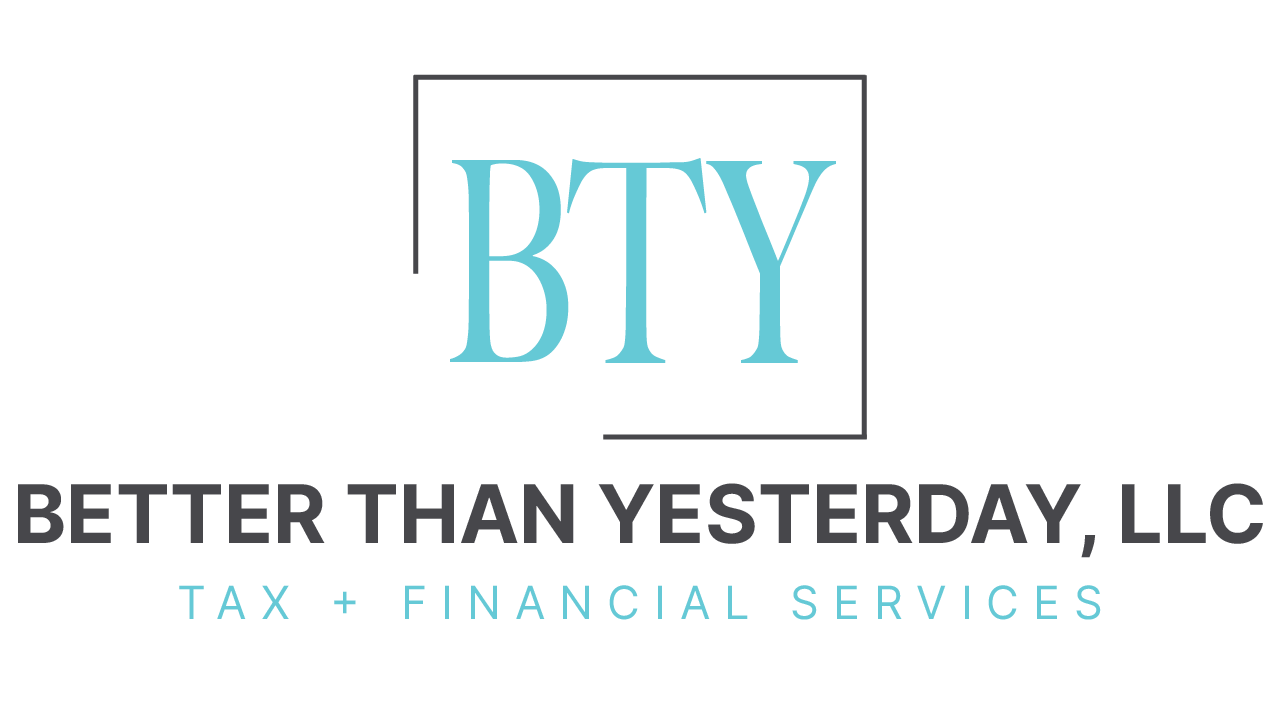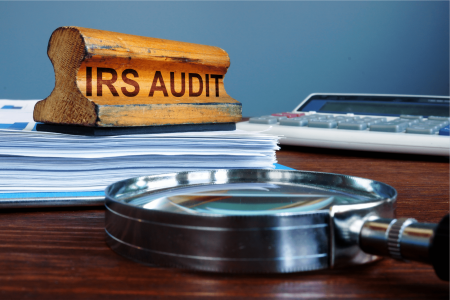Unless you’re a little weird, having the IRS audit you probably ranks somewhere on your fear list.
Of course, there is always the option that you may be randomly selected for an audit based solely on a statistical formula.
BUT the best way to avoid an IRS audit is to reduce your red flags.
You can do so by following these eight tips!
1. FILE TAXES ON TIME
Always, always file your taxes on time. Even if you owe and can’t pay. The IRS has payment plan options for you.
Getting on a payment plan with the IRS is better than hiding and avoiding filing your return until you have the money.
Because that strategy will increase your amount due by penalties and interest, plus a potential audit due to you filing late.
So don’t wait until the last minute to file your return, get it done early so that you build a good track record with the IRS.
2. KEEP GOOD RECORDS
Another good record that you need to build is your own set of recordkeeping.
Whether you are only a W-2 filer or a business owner, you need to accurately report your income to the IRS.
W-2 filers are harder to fudge numbers since most of their income is already reported to the IRS. But if you are a W-2 filer and you do random side work for people and receive a Form 1099 then you can’t just disregard that. You have to report that on your tax return, even if you think, “well they just paid you cash so you don’t need to report it”.
Business owners, this tip is mostly directed at you. Sorry to throw you under the bus.
But it is very crucial that you accurately report your income and expenses. Having a good set of books on your business will help you accurately report income and expenses.
And don’t just decide on cash payments, that you’ll leave those out of your income. That is underreporting your income and that is tax fraud. So even when you receive cash, you need to mark that as income in your books.
3. DOUBLE CHECK TAX FORMS
Speaking of reporting income correctly, it is always a good practice to double-check any tax forms that you receive.
Because everyone is human, and humans make mistakes.
Whether you are a W-2 filer or a business owner, double check your tax forms to your record of income.
If you receive a 1099 or other tax forms, compare them to what you have on your records.
Sometimes tax form preparers accidentally transpose numbers or add/forget extra zeros.
These tax forms are reported to the IRS, so the IRS will be watching to see if you are reporting these tax forms on your tax return.
Let’s say that you received a Form 1099 for $9,638.
And on your record of income, you only received $6,938 from that customer. The IRS would be expecting you to report an additional $2,700 in income compared to what you would’ve reported off of your books simply because that Form 1099 was incorrectly filed.
To fix this, you need to reach out to that customer and explain that the 1099 you received was filed for the incorrect amount and provide the amount that it should’ve been. The customer will need to file a corrected 1099 with the appropriate amount. This corrected 1099 will be reported to the IRS, and the IRS will now know that you should only be reporting $6,938 in income from that customer.
This is why double-checking your tax forms is so important because even if the tax form preparer incorrectly files the tax form, you are liable to report that in the eyes of the IRS. If you don’t correct it prior to filing your return you may be subject to an audit.
4. DON’T REPORT A LOSS EVERY YEAR
Reporting a net loss in more than two out of five years will more than likely get you a spot on the IRS audit list. The IRS may also deem your business as a hobby which will disallow all of your business deductions.
So be careful of reporting losses. Even if you actually had a loss, then don’t report all of your business expenses so that you can show a little profit.
5. INDEPENDENT CONTRACTORS
Independent contractors can be red flags in two ways.
One, if you are taking a business deduction for contract labor and not issuing 1099’s that is a big no-no.
If you want to take the deduction, then you need to issue the 1099, if you are required to. Click here to get a guide on how to determine if you need to file 1099s for a vendor.
Number two is if you have employees and your ratio of independent contractors to employees is high. Using independent contractors instead of setting them up as an employee can be a way to avoid paying payroll taxes.
There are clear IRS guidelines on who must be classified as an employee and who can be an independent contractor.
Make sure that you know and follow these IRS guidelines. If you ever have questions, reach out to a professional for guidance.
6. ONLY TAKE LEGIT HOME OFFICES
Home offices can be a cause for a red flag, especially if you have large expenses for maintenance and utilities.
Don’t take the home office expense to just take it. You have to actually have a space that legitimately qualifies as a home office deduction. Click here to read more on the requirements to claim the home office deduction.
7. ESTIMATED TAX PAYMENTS
If your expected tax bill is at least $1,000 or more then you should be making quarterly estimated tax payments. (C Corporations generally make estimated tax payments if they expect to owe $500 or more)
These payments are due, for both Federal and State, on April 15th, June 15th, September 15th, and January 15th.
For example, if you are setting up 2021 quarterly estimates. You would need to plan on making a payment on the following dates:
- April 15th, 2021
- June 15th, 2021
- September 15th, 2021
- January 15th, 2022
The quarterly estimates are set up when completing your tax return. Therefore, to set up your 2021 quarterly estimates, you would do that when submitting your 2020 tax return.
8. DON’T IGNORE AN IRS NOTICE
Finally, if you do end up getting an IRS Notice – do not ignore it!
You will make the situation worse if you ignore the IRS notice. Because the IRS will assume the worse if they don’t hear a response.
So, get it taken care of right away. Reach out to a tax professional to help you, and most of the time it may be something simple. Reaching out to a tax professional is the best way to get it taken care of correctly since they deal with the IRS on a regular basis.
The bottom line is, if you keep good records and are honest on your tax return then there is no reason for you to be afraid of an IRS audit. Even if you do get audited, it should be a breeze with good honest records.
Remember: You can never go wrong doing the right thing.
All videos are made with Animaker, sign up for free today!






